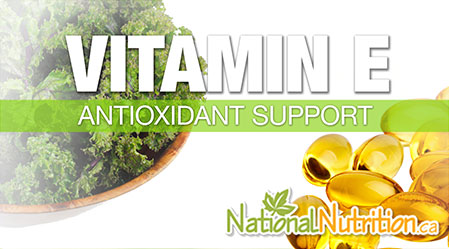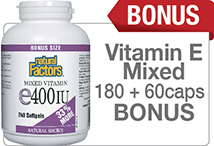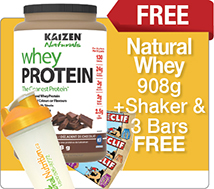
Green leafy vegetables are a wonderful sours of Vitamin E
Vitamin E
Updated Jan. 31st, 2024
Vitamin E is a group of fat-soluble vitamins that act as antioxidants and thus neutralize free radicals. Free radicals are unstable molecules with an unpaired electron that are extremely reactive and damage surrounding cell membranes, fats, and fat-soluble vitamins and nutrients. We encounter free radicals through environmental exposures, such as cigarette smoke, air pollution, and ultraviolet radiation from the sun (UV rays).
In doses less than 150IU per day, Vitamin E has been shown to increase life-span (by reducing all-cause mortality). Vitamin E is well known for the prevention of cardiovascular disease in a few different ways. First, it decreases platelet aggregation (clot formation), thus allowing the blood to flow more freely and bring more oxygen to the tissues. Also, as an antioxidant, vitamin E protects our artery walls from damage and prevents the oxidation of LDL cholesterol, both of which contribute to arterial plaque formation when left untreated.
Antioxidant properties allow vitamin E to be useful in potentially helping to prevent unhealthy cell growth by reducing free radical damage to the cellular genetic material. Vitamin E is also believed to be an anti-aging vitamin because its antioxidant effects reduce the cell damage that can lead to visible aging. Cataracts are caused by free radical damage of the lens of the eye and therefore vitamin E can help to prevent this damage. It has also been shown to be anti-inflammatory by inhibiting inflammatory pathways in the body. Vitamin E has been found to be protective against Alzheimer's disease, atherosclerosis, and diabetes mediated liver damage, as well as PMS. It is also used to treat many existing conditions including infertility, fibrocystic breasts, anemia, and topically for scars.
Subtypes of Vitamin E
There are two groups of compounds that make up vitamin E: tocopherols and tocotrienols. Each group contains four different forms that are named by the Greek letters alpha, beta, gamma, and delta. The most biologically prevalent of these forms is the naturally sourced d-alpha-tocopherol.
Although previously overlooked due to their lower levels, recent research has brought tocotrienols into the spotlight. It has been found that tocotrienols possess powerful neuroprotective, cholesterol-lowering and healthy cell growth properties outside those exhibited by tocopherols. Vitamin E has also been looked at in relation to healthy cell growth, particularly in breast and colon cells.
Recent research suggests that the various forms of vitamin E are not redundant in their health benefits, and thus a supplement containing all subgroups of both tocopherols and tocotrienols is preferred for general supplementation, although specific conditions can be targeted with certain subgroups.
Natural vs. Synthetic Vitamin E
Synthetic alpha-tocopherols are listed as "dl" (dl-alpha-tocopherols), as opposed to their natural d-alpha-tocopherol counterparts. These synthetic mixtures contain equal amounts of eight different stereoisomers of alpha-tocopherol, four of which are absorbed, and only one of which is the naturally occurring d-alpha-tocopherol. Thus, although synthetic alpha-tocopherols are less expensive, they are half as active by dose as naturally sourced options and may have different side-effects (see below).
Controversy
There has been some controversy about the beneficial effects of vitamin E and whether or not supplementation may actually be detrimental. One well-publicized study on healthy cell growth showed that high-dose vitamin E supplementation was associated with a slightly reduced life span (increased risk of all-cause mortality). Another study showed that vitamin E supplementation may be implicated in increased risk of prostate cancer after over one year of stopping supplementation. Co-supplementation with selenium eliminated this increased risk and an opposing study found that high blood levels of alpha and gamma-tocopherols in men was associated with a 50% lower risk of unhealthy prostate cell growth. It goes without saying that further research is required. It is also interesting to note that the negative prostate study involved the use of synthetic vitamin E and the all-cause mortality study failed to specify the type of vitamin E used. Thus, whether or not the negative effects are unique to the synthetic forms has yet to be determined, but in any case, males supplementing with vitamin E in higher doses should co-supplement with selenium to avoid possible negative effects.
It is also interesting to note that it has only been in the last few years that vitamin E research has begun studying each subset of tocopherol and tocotrienols separately. Thus, although high dosages of one form of vitamin E may be detrimental, others may actually elicit positive effects (e.g. High dose alpha-tocopherol vs. alpha-tocotrienols) and dosage recommendations for each will be different.
Formulations
Vitamin E is available in an oil or water (dry tablet) base. Because vitamin E is fat-soluble, it is preferable to have it in an oil base to promote absorption. The water-based supplement is beneficial for those who do not digest fats well, for example, those with gallbladder dysfunction, and those whose conditions are aggravated by fats, for example, acne sufferers.






















I take Vitamin E that I buy from National Nutrition as they have the best deal in town. I take 400 IU per day, that is one softgel. Essential for good skin and an internal moisturizer as well. Great to break open a capsule when you have a burn which I get from cooking. It is also an antioxidant, good for your health.
Hello Roger,
You are correct, vitamin E is an excellent antioxidant that supports skin health as well as healthy cell production. We're happy you enjoy our deals, we work hard to provide great deals for you. If you'd like to learn more about skin health, check out this article too:
https://www.nationalnutrition.ca/articles/health-concerns/skin-health/
Stay healthy & well.
Excellent oil or cream to put on fresh cuts or wounds. It heals cuts etc really fast. Also an excellent vitamin to restore and aid heart health.
Hello Sharon,
Indeed, vitamin E is a great topical supplement for skin health, especially for minor burns, cuts and scrapes. When taken in capsule form, it also has many benefits for your health as you mentioned. If you'd like to learn what other natural health products support the skin, have a read through this article:
https://www.nationalnutrition.ca/articles/health-concerns/skin-health/
Thank you for bringing up the differences between Vitamin E consumed in food versus supplement-I knew about the cancer study results and the contoversy that you mention but did not know that synthetic alpha-tocopherols contain equal amounts of eight different stereoisomers of alpha-tocopherol, only four of which are absorbed!! That is one clear reason why, as with so many other things, the synthetic versions are less effective than natural original!! Also, thank you for the note about Vitamin E and blood thinning: this is especially relevant to me as I do not clot while.
Hello Rachel,
We are happy you enjoyed our article on vitamin E and the differences between obtaining this nutrient through diet and supplements. Often times it's difficult to maintain levels of certain vitamins and minerals from diet alone due to the lack of bioavailability and lack of nutrients in our food/soil. Happy you enjoyed some of the research referenced in this article, as well as the importance of the natural format of nutrients vs synthetic. Please check out our video on vitamin e to learn even more, https://www.youtube.com/watch?v=VUeRyOtIQco
Stay healthy & well!